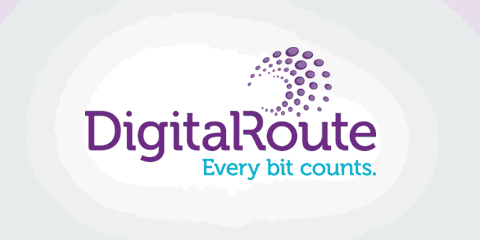Big Data to the Rescue
By: Jesse Cryderman

Mobile phone customers (including this author) love to complain about slow downloads, jerky video, and 3G fallback. But in reality, it's a great time to be a mobile customer.
Think back even five years. The most desired devices were only available on a few select networks, coverage maps were spotty, data speeds were pokey, "bill shock" was a serious concern, and customer service was only incrementally better than the monopolistic days prior to deregulation. It's easy to forget these facts, because today, even MVNOs and prepaid carriers offer the latest Apple and Samsung smartphones. 4G LTE, which used to be a premium differentiator, is now pervasive. Premium content is available from nearly any platform or service provider. Overall costs have balanced out, and performance has definitely increased. Multi-channel customer support has evolved. On the cellular network, 1080p video streams might still experience the occasional hiccup; but by and large, the service experience today has undoubtedly improved across the board.
For the mobile network operator, however, this flattening of the service and device landscape has a significant impact on business. After all, if all things are equal, what is left to provide unique value?
Big data has emerged as a powerful tool to grant operators insights into customer behavior, network performance, support metrics, advertising, and new business opportunities. Although the analytical tools are still being refined [check out "Next-Gen Data Analysis" in this issue], big data is playing an ever larger role in telecommunications. In fact, a strong argument could be made that the data itself is the unique and element of value in service provider organizations that cannot be commoditized. And if that is the case, the data-driven telco is the next iteration of the service provider business.
About DigitalRoute
DigitalRoute revolutionizes Network-IT integration. Its MediationZone platform:
• Improves Time-to-Market for new services.
• Enables cost efficiencies in the BSS/OSS stack.
• Facilitates data monetisation.
• Increases customer satisfaction.
We have been delivering new approaches to enterprise data management for since 1999. MediationZone offers high throughput and a unique degree of user configurability, processing all
usage and statistical data from any network -- both billable and non-billable events. The platform makes data available to the right downstream systems in the right formats in the
most appropriate volumes at the required times, without losing a single bit. It is the foundation from which multiple use-cases can be addressed in the areas of Online Control and
Data Processing.
Over 300 leading companies worldwide use DigitalRoute technology for data management including a number of OEM partners who use our platform as a central part of their own
offerings. DigitalRoute is built on the core values of Expertise, Open- Mindedness and Commitment. DigitalRoute is a venture-backed, privately held company with a turnover of 30m
EUR in 2013 and a record of profitability since 2005. With close to 200 employees, the company is headquartered in Stockholm, Sweden with regional offices in Gothenburg, Atlanta,
and Kuala Lumpur.
As so much of telecommunications becomes commodified, or at least standardized and undifferentiated, the business model of the future for some companies may rest entirely on big data and the unique and strategic value it provides. Here's a couple ways to do it.
Data into dollars
Telecom operators possess and manage the most valuable databases in the world, which capture and contain customer preferences, billing data, location information, and much more. This data can be leveraged for everything from location-based advertising and personalized incentives to business intelligence and customer experience management (CEM). Since revenue and traffic have become increasingly dissociated with time, the ability to extract value from the telcos’ Big Data repositories becomes more and more vital.
Some service providers are already cognizant of this possible future and are laying the groundwork for a shift in operational strategy.
“We could make a living just out of analytics,” said Von McConnell, director of technology development and strategy for Sprint, at Broadband World Forum. He added that although service providers are in the business of selling metered usage and devices, the business’s true value lies in massive databases. CSPs must evolve, Von McConnell added: “We’re going to have to move to a more data-scientific approach.”
One area where telcos are already turning data into dollars is advertising. Telefónica Germany is running an advertising-financed mobile phone tariff called Netzclub. AT&T has gone even further, with its Sponsored Data platform. The service provides new data use options for customers and new mobile content delivery channels for sponsors. Under this new service, eligible data usage charges are billed directly to the sponsoring company. Data sessions are identified by a “sponsored data" icon on the end user's device, and the usage is itemized separately on the end user's monthly invoice. The service introduces a new business model for broadband connectivity for AT&T and paves the way for others to follow suit.




















